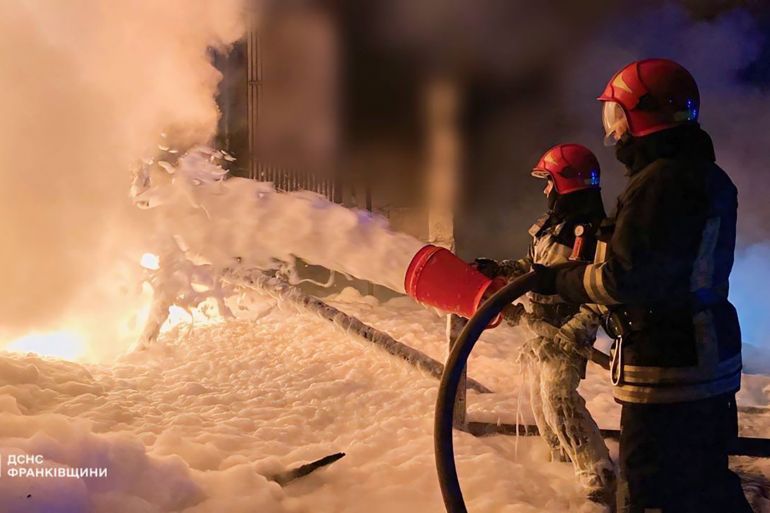Concerns about possible interruptions to world energy supply and further escalation of the war have been raised by Russia and Ukraine’s intensified assaults on one other’s energy infrastructure.
Both sides of the continuing Russia-Ukraine conflict have escalated their assaults on each other’s energy infrastructure, hence intensifying the so-called “energy war” between the two countries. Potential interruptions to global energy supply and additional escalation of the war have been raised by this retaliatory cycle of attacks on oil refineries, power plants, and other vital energy infrastructure.
Russia Resumes Attacks on the Energy Sector of Ukraine
Russia has begun a “massive missile attack” against Ukraine’s energy facilities, targeting targets in the Dnipropetrovsk, Ivano-Frankivsk, and Lviv areas, according to reports. Because of the severe equipment damage the strikes have done to many thermal power facilities, Ukrenergo, the state energy operator of Ukraine, has disconnected its major overhead power line in the west as a precaution.
“In response to attempts by the Kyiv regime to damage Russian energy and industrial facilities,” the Russian Defense Ministry said, describing the attacks. In recent months, Moscow has escalated its assaults on Ukraine’s energy infrastructure with the intention of destroying the nation’s power system and interfering with vital services.
Drone Attacks on Russian Refineries in Retaliation by Ukraine
Ukraine has intensified its own strikes on Russian energy targets as payback. According to Ukrainian intelligence sources, the Security Service (SBU) of that nation carried out drone attacks on the Ilsky and Slavyansk oil refineries in the Krasnodar area of Russia, resulting in fires and operational interruptions.
Russian oil refineries are valid targets in the ongoing war, according to Kyiv, which has justified these strikes. But anticipating probable Russian retribution and subsequent hikes in world oil prices, Western allies have pushed Ukraine to abstain from such attacks.
Growing Conflict and Possible International Consequences
Russia and Ukraine are at odds over the tit-for-tat attacks on energy infrastructure; both sides claim the other is intensifying the hostilities. Kremlin spokesperson Dmitry Peskov reaffirmed that Kiev’s official reluctance to engage with Moscow means that there are no basis for peace discussions.
As the energy conflict intensifies, worries about possible interruptions to world energy supply and the wider economic effects of persistent strikes on vital infrastructure grow. Long-lasting interruptions, according to energy specialists, may cause price surges and put more pressure on the already erratic international energy markets.
A further factor aggravating the humanitarian crisis in the area is the growing possibility of collateral damage and civilian fatalities from assaults on energy installations.
Chances of Diplomacy and De-escalation
Notwithstanding the increased tensions, some experts say that both sides have a strong motive to prevent an all-out energy war since it may have disastrous economic repercussions and draw criticism from other countries. But with both parties firmly rooted in their positions and diplomacy now stuck, the opportunities for de-escalation are still unknown.
The energy war between Russia and Ukraine is a sobering reminder of the far-reaching effects of military conflicts as they linger and the pressing need for fresh diplomatic attempts to find a peaceful solution to the problem. Closely observing the situation and its possible effects on world energy supply is the International Energy Agency.
Started in February 2022, the war in Ukraine has already had a profound effect on the area and the globe, with the energy industry serving as a key battlefield. The whole community keeps an eye on things and demands a peaceful end to this terrible battle as the maps monitoring the fight keep changing.




2 thoughts on “Russia and Ukraine’s Tit-for-Tat Strikes: Escalating Energy Wars”